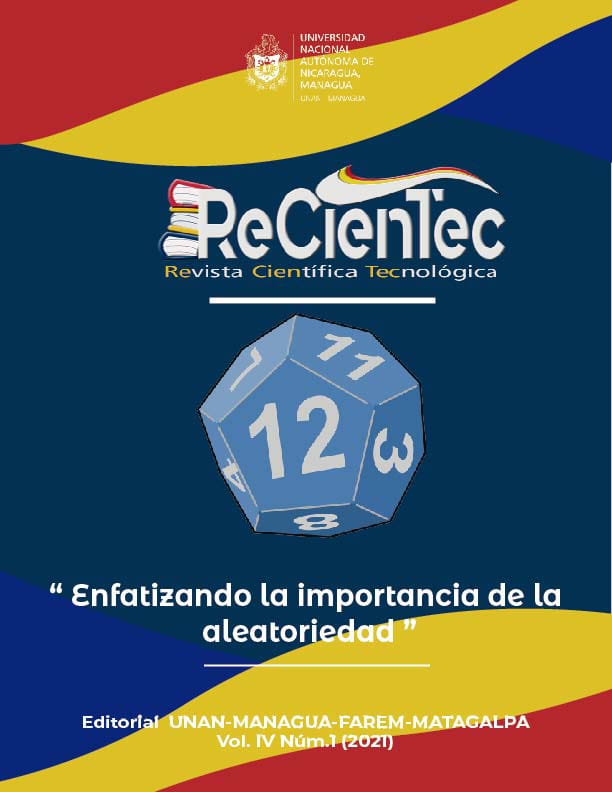Apuntes Sobre la Arqueología Nicaragüense
Palabras clave:
Arqueología nicaragüense, Paradigma Arqueológico, Arqueología IndisciplinadaResumen
La práctica de la Arqueología en Nicaragua ha tenido una trayectoria un poco lenta en comparación con los países vecinos, sin embargo, esta realidad se debe a múltiples factores geopolíticos e históricos, en muchos casos las causas nos pueden parecer obvias, e incluso justificables. Por un lado, las múltiples guerras civiles que ha sufrido el país a lo largo y ancho de los siglos XIX y XX, no permitió el desarrollo epistemológico, por el otro, se dijo que en el territorio nacional no hubo “grandes civilizaciones” constructora de superestructuras, como en otras regiones de Centroamérica, esto no favoreció el interés por la disciplina arqueológica.
A pesar de los antecedentes históricos y la aparente falta de integración histórica, la Arqueología nicaragüense, cuenta con elementos teóricos implícitos y explícitos que guarda una elevada coherencia social y cultural de la idiosincrasia nacional. Sin embargo, la investigación arqueológica nunca ha ocupado un lugar destacado en los titulares de las publicaciones especializadas. No obstante, a 161 años de Arqueología en Nicaragua podemos afirmar que el desarrollo conceptual y la práctica científica es coherente y cuenta con sus propios objetivos a lo largo de toda la historia. Desde que el encargado de negocios de Estados Unidos para las Repúblicas de Centroamérica E.G. Squier llegó a Nicaragua en 1850, inició una tradición de trabajos arqueológicos en la región del Pacifico, donde incorporó nuevos elementos meramente empíricos y descriptivos, hasta el desarrollo actual de la ciencia arqueológica. En los años de práctica en este campo científico ha dado lugar a una tradición ampliamente consolidada y coherente entre sí, a pesar de sus propias contradicciones internas y externas.
Descargas
Citas
AA.VV. (1993) 30 Años de Arqueología en Nicaragua, Managua, Museo Nacional de Nicaragua INC.
Bovallius C. (1886) Nicaraguan Antiquitie. Estocolmo; Swcdish Society of Antropology and Geography.
Boyle. F. (1868) A ride across a Continent. A personal narrative of Wandergings through Nicaragua and Costa Rica. Londres.
Braswell, G. (1996) El intercambio comercial entre los pueblos de Mesoamerica y la Gran Nicoya. Ponencia presentada en la University of Mobile, Latin America Campus, Carazo Nicaragua.
Beatriz Puebla y Ermengol Ballbé (1999) Arqueología en Nicaragua: 140 años construyendo discurso patrimonial.
Cruz Uwe Paul (2018) Liderazgo e Identidad étnica en la comunidad indígena de Siare y Apante Grande, en Matagalpa.
Escobar A. (2005) Más allá del Tercer Mundo, ICANH. Bogotá.
Espinoza, E. (1995) “La Cerámica temprana de Managua y sus vínculos regionales” en Descubriendo las huellas de nuestros antepasados (F.Lange ed) pp 17-24 Managua ALMA.
Espinoza, E. Ramiro García (1995) El impacto del desarrollo económico sobre el patrimonio arqueológico, caso específico: Proyecto azucarero Victoria de Julio, en Cultura y Naturaleza sin frontera (F.Lange y M.Molina) Managua.
Espinoza, E. R. González y D. Rigat (1995) Estudios arqueológicos en la cuenca del Lago de Managua
Fonseca Oscar (1988) Hacia una arqueología social. Acta del primer simposio de la Fundación de Arqueología del Caribe, San José Costa Rica.
GNECCO, C. y Zambrana, M. 2000. Introducción: el pasado como político de la historia, en Zambrana, M. y Gnecco, C. Memorias Hegemónicas, Memorias Disidentes. Bogotá: INCANH-Universidad del Cauca.
Gorin F. (1990) Archéologie de Chontales, Nicaragua, Tesis de Nouveau Doctorat. Paris: Université de Paris.
Gramsci, A. (1993) El materialisme Históric i la Filosofia de Croce. Barcelona:Ed. Laia.
Gómez Santiago (2005) La hybris del Punto Cero, ciencia raza, e ilustración en la Nueva Granada. Bogotá.
Hooper, John W (1992). Early Formative Cultures en the Intermediate Area: A backgroud to the Emergence of Social Complexite.
Habber, AF, Mamani, y Roda, L (2007) Conversación con Ernestina Mamani. Arqueología Suramericana.
Habber, A (2011) Nometodologia payanesa. Notas de metodología indisciplinada. Revista Chilena de Antropología.
Lander, E. (2000) La colonialidad del Poder: Eurocentrismo y Ciencias Sociales. Perspectivas latinoamericanas. Buenos Aires: UNESCO/Edición CLASCO.
Lange, F. W (1993) El desarrollo de la Investigación Prehistorica en Nicaragua, en 30 años de Arqueología (AA.VV.) pp.9-16. Managua: Museo Nacional de Nicaragua. INC.
Lange, F. W (1994) Evaluación Histórica del concepto Gran Nicoya, Vinculos, vol.18, nº 1-2vol.1nº 1-2:1-8.
Lange, F. W (1995) Curso Regional de Actualización para Arqueólogos en Servicios en Cultura y Naturaleza sin fronteras (F. Lange y M. Molina eds.) pp. 5-8 Managua: USDA Forest Service Southern Region Instituto Nicaragüense de Cultura.
Lange, F. W (1996) Gaps in Our Databases and Blanks in Our Syntheses: The Potencial for Central American Archaeology in the Twenty–Fist Century, en Panths
Descargas
Publicado
Número
Sección
Licencia

Esta obra está bajo una licencia internacional Creative Commons Atribución-NoComercial-CompartirIgual 4.0.


